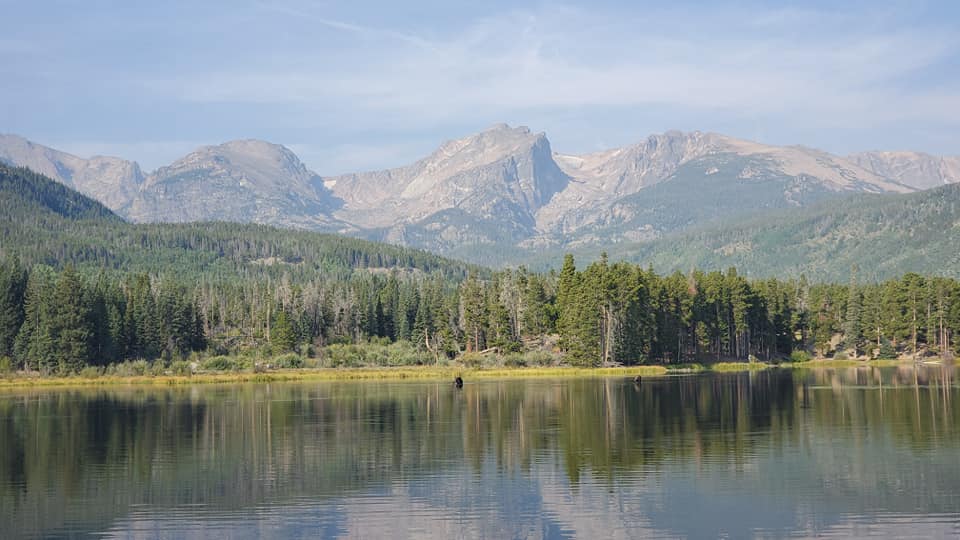Nature can help with mental, physical, and spiritual health. It provides numerous benefits to our health beyond what we consciously realize. Spending time in nature heals the soul. Nature provides this feeling like there is something larger than us. It can help us to reflect on our lives and look at what is important. In this blog, I will talk about the mental, physical, and spiritual benefits of nature, the benefits of grounding, and how to get the most benefits out of nature.
Note: Most of the pictures included in this blog post are from my recent trip. My time spent in nature was calming to my mind and cleansing to my soul.
I personally turn to nature when I’m stressed, overwhelmed, angry, or sad. A sense of calmness and peace often washes over me when I’m in nature, especially when I’m near water or in a forest surrounded by trees. I’m very dependent on nature for living a wellness lifestyle.
“Nature itself is the best physician.” – Hippocrates
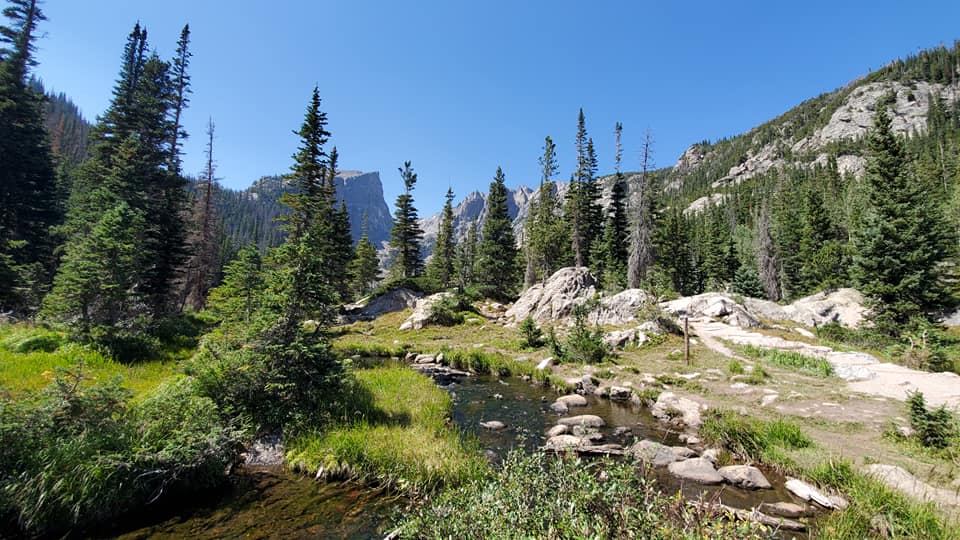 Being Active in Nature
Being Active in Nature
I’m not a big fan of working out in a gym, taking a fitness class, and doing other indoor exercises. My favorite way to get exercise is the things I do outside. I enjoy walks, hiking, kayaking, biking, swimming, and frisbee golf. These things I don’t necessarily do for exercise though, that’s just a bonus. I just love being active outside. My recent two-week vacation was all about hiking and spending time in nature. Finding activities you love to do is the key to getting enough exercise into your life. It is easier to ensure you are being active enough if you incorporate a fun sport or activity into your weekly or even daily routine.
Nature for Mental & Spiritual Health
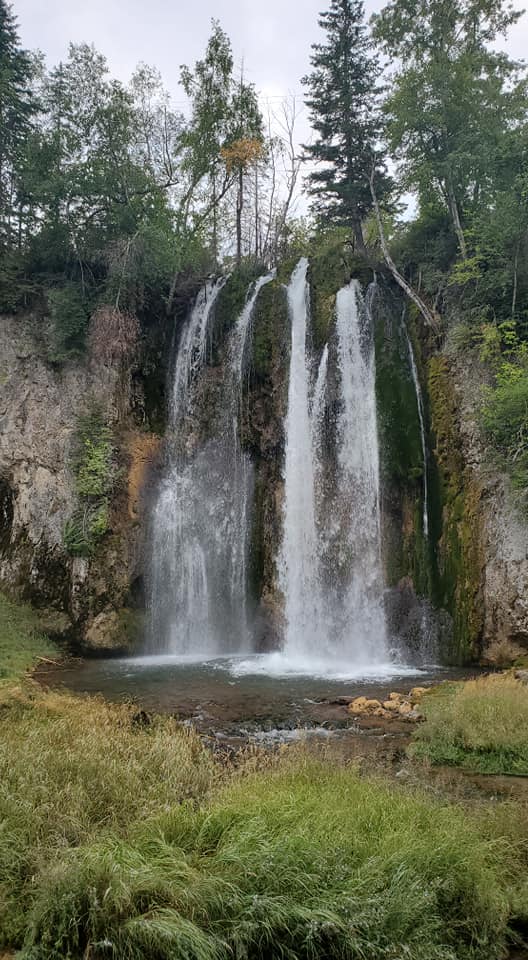 Nature has been shown to help people with stress. Many studies have shown time in nature can reduce stress.
Nature has been shown to help people with stress. Many studies have shown time in nature can reduce stress.
Spending just 20 minutes connecting with nature can help lower stress hormone levels, according to a study on April 4, 2019, Frontiers in Psychology (Harvard Health, 2018). Just 20 to 30 minutes of nature time can lead to reduced cortisol levels. The University of Minnesota Center for Spirituality & Healing cited a study in which researchers found that more than two-thirds of people choose a natural setting to retreat to when stressed (Delagran).
Nature has not only been shown to help reduce psychological stress, but also improve mood levels, increase energy, create more meaning for people, and improve self-esteem. Many people are less depressed or anxious after spending time in nature. It can also increase feelings of well-being, happiness, and increase people’s ability to care for others.
People even see an increase in attention spans after spending time in nature which is evident in Andrea Taylor’s research on children with ADHD. Additionally, people who take nature breaks from their work typically concentrate better, can more effectively problem solve, and just have more mental clarity in general.
Nature for Physical Health (Exercise and Grounding)
Time in nature can lower blood pressure, regulate your heart rate, reduce tension, boost the immune system, and actually help you get better sleep. Studies have shown that people who live near green spaces and spend more time in nature often live longer.
Outdoor physical activity has been shown to be more restorative than indoor exercise. In addition, people are also more likely to enjoy physical activities like walking or running if it involves being outside. Exercising outside has many amazing benefits including the different challenges nature can present, the scenery to be enjoyed, the calming aspects, and so much more.
What is Grounding? And How Can It Benefit Us?
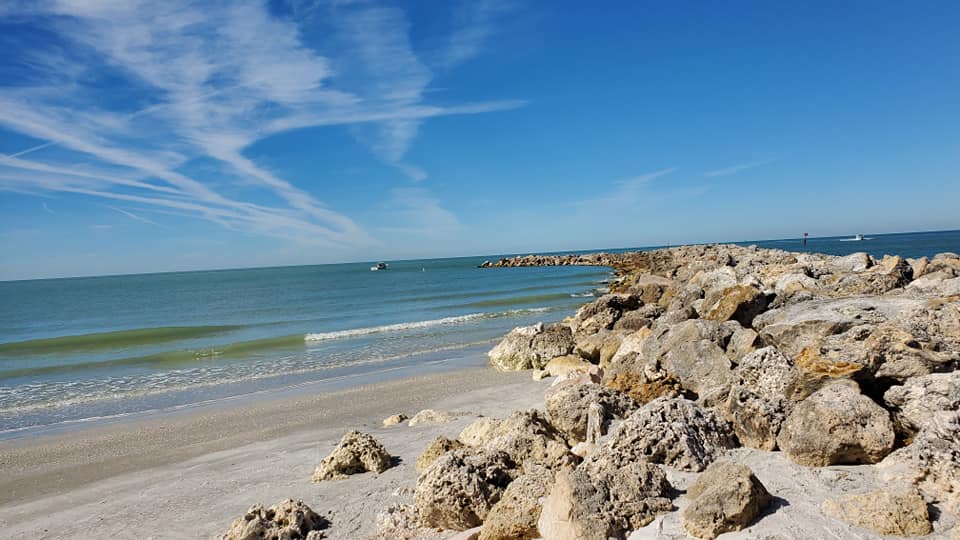
I believe this is a beach in Florida I visited.
People can also get the benefits of nature through grounding (AKA earthing). Grounding is walking barefoot through grass, dirt, sand, etc., or could even be lying in the grass. Proponents say that earthing can lead to better sleep, reduced pain, reduced inflammation, destressing effects on the nervous system, reduced fatigue, reduced blood pressure, and more (La Puma). The earth provides electrical energy. It provides a negative charge, and often the body is more positively charged so grounding provides a balance. These electrons also offset creative oxygen-free radicals – involved in the body’s immune and inflammatory responses (Chamberlain, 2020).
It is believed that our health is affected when we don’t connect with the earth due to the overly positive electrical charges running through the body. What earthers and grounders contend is that our distance from and lack of connection to the earth’s natural energy has been one of the sources of the dramatic increase in chronic illness, immune disorders, and inflammatory diseases in recent decades—and that getting back in touch with this natural electrical potential can be a source of healing and wellbeing (La Puma). In the early 1900s, people didn’t have plastic and rubber shoes. Shoes were made up of natural materials. Additionally, for thousands of years, people slept on the ground. We don’t connect nearly as much with the earth as our ancestors did.
During the warmer months of the year, I try to walk barefoot through the grass as often as possible. I personally love the feeling of the natural earth below my feet. I have also found lying in the grass is very calming.
Your Environment is Always Impacting You!
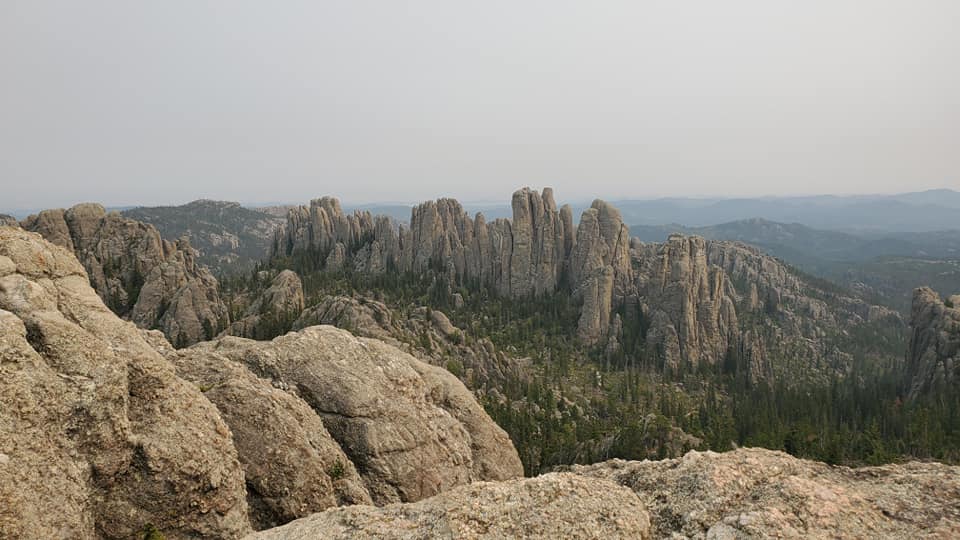
This is the Black Hills in South Dakota.
What you are seeing, hearing, experiencing at any moment is changing not only your mood, but how your nervous, endocrine, and immune systems are working (Delagran, 2016). The environment surrounding you can cause you to be stressed, anxious, or sad. Which can change your heart rate, blood pressure, cause muscle tension and reduce the effectiveness of your immune system.
Just viewing images of nature through a window or in pictures can change the way people feel emotionally and help reduce stress. Even having plants around can help people get the nature that they crave. People surrounded by nature tend to have a better community, they will engage more with their neighbors, and may even have less violence and crime in their neighborhoods. Studies have also shown that long hours in front of a TV and computer have a strong association with depression, lack of empathy, and less concern for the well-being of others.
Benefits of Sunshine
The sun not only gives us the light of day to feel awake and alive, but it can also help improve our sleep. In addition, it reduces stress (the sun regulates melatonin) and improves our mood (sunshine increases serotonin in the body which is a chemical known for making people more calm and focused).
The sun also provides Vitamin D (an essential vitamin) which helps strengthen bones and the immune system. Vitamin D is needed for many systems throughout the body, it functions as a hormone. Being deficient in Vitamin D can have many negative impacts on our health. Unfortunately, many people are deficient and need supplements to get enough Vitamin D.
Tips for Getting the Most Benefits Out of Nature
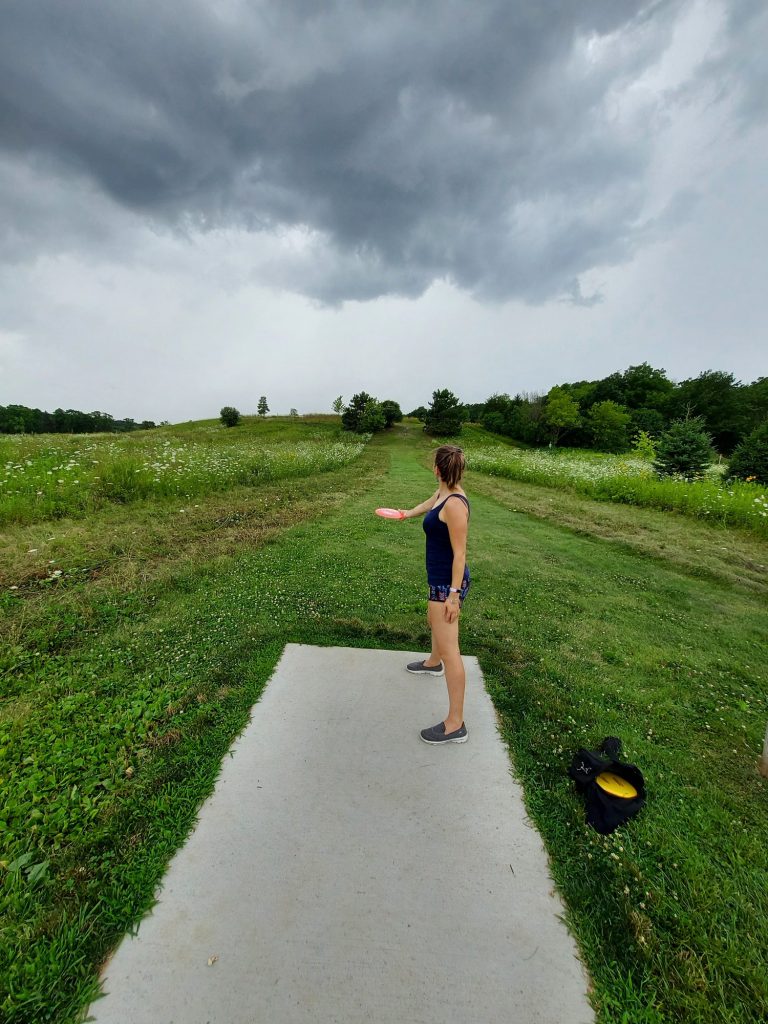
I’m enjoying some nature time playing some frisbee golf before the storm rolls in.
Choose Quiet, Green Spaces
The benefits of nature are greatly increased when you spend time in green spaces like parks that are not crowded vs walking along a busy street in a downtown area. Scientists at Stanford did a study on this and found people with depression tended to be less depressed after 90 minutes of walking through a park setting, more so than people who walked through a busy urban area.
Find an Activity You Enjoy Doing Outside
It doesn’t have to be very active. You might just enjoy having picnics outside, bird watching, playing with a pet, playing some leisurely yard games, planting a garden, or creating or building something. It is good to have numerous activities you enjoy doing outside. I struggle with getting enough time outdoors as a person who doesn’t enjoy Winter (winter here lasts forever!). So, last year I bought snowshoes and warm clothing to help my craving to be outdoors.
Disconnect
Leave your cellphone behind, silence it, or even turn it off (crazy concept right? I almost never turn my phone off). When I go on vacation I make it a goal to minimize my use of my phone so that I’m present in the moment I’m in. I want to fully indulge in all the new sights and experiences. It’s important to live in the present with no concern for what else is happening in the world. We also don’t need to share it to enjoy it.
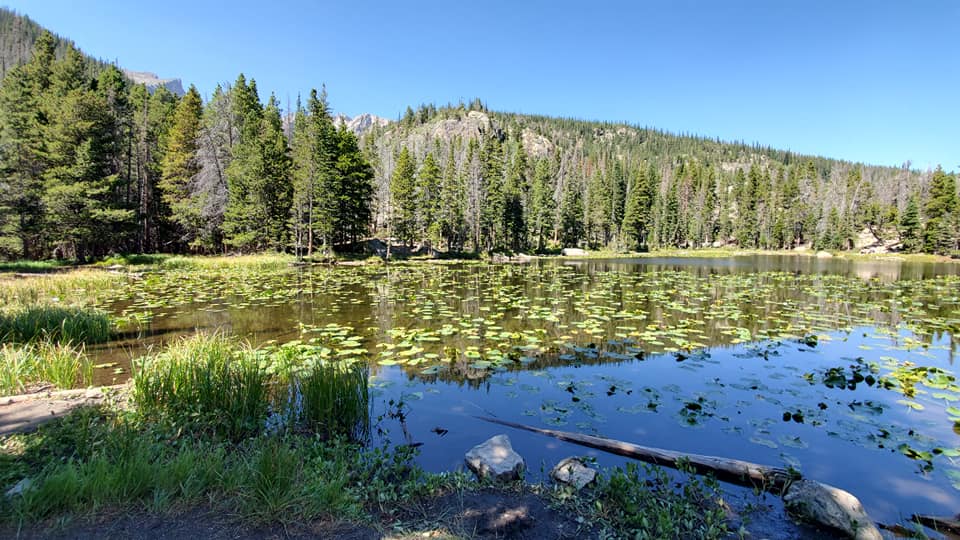
This is in the Rocky Mountains in Colorado.
Be Mindful
When I’m hiking in the mountains, I will often clear my mind completely and just be thinking about the scenery around me, or the motion of my feet and arms, and where to take my next step (especially when I’m climbing over rocks).
Being mindful is all about focusing on the activity you are engaged in and not thinking about what you will have for lunch, what you will do later, what you did yesterday. Your focus is completely on the present moment, listening to nature, or maybe just the sound of your own breathing. Being near water is also supposed to improve mindfulness.
Bring Water
If you are planning an activity outside that is longer than 30 minutes you should always have water with you. As I mentioned in a previous blog post, it is estimated that 50% of people don’t drink enough water. If you notice you are thirsty you are already dehydrated. The more water you drink, the more energy you will have, and the more you will enjoy your nature time.
Dress for the Occasion
Wear good walking shoes, bring layers, get the proper clothing and gear for any activities you are looking to do, and always consider rain. I always keep two umbrellas in my car so that the weather can’t rain on my parade.
Actions to Take
- Spend more time in nature. When you are feeling stressed, angry, sad, or dealing with complicated life situations, nature could be just what you need!
- Walk barefoot more.
- Enjoy more outdoor activities.
View All Wellness Lifestyle Blog Posts:
What It Means To Live A Wellness Lifestyle & Why It Matters
How an Unhealthy Spine Can Cause Numerous Problems
How Relationships Influence Our Health (in multiple ways) & Our Success
Managing 3 Stages of Stress (Conscious, Hidden Stress & Preventing It)
Cardio vs HIIT – Find out the Benefits of Both!
How Exercise Can Be Natural & Fun
Everything You Need to Know About Supplements
How to Sleep Better & What to do When You Can’t Sleep
Importance of Each Sleep Stage, Sleep Schedules & More
How to Increase Water Intake & Choosing Clean Drinking Water
Key to Wellness: Listening to Your Mind, Body, Spirit/Soul
Addicted to Your Phone? Ideas for Spending Less Time on Your Phone
Resources
Delagran MA MEd, Louise.Taking Charge of Your Health & Wellbeing/How Does Nature Impact Our Wellbeing?. Retrieved from: https://www.takingcharge.csh.umn.edu/how-does-nature-impact-our-wellbeing
Ewert, Alan, Chang, Yun. (2018, May 17). NCBI/Levels of Nature and Stress Response. Retrieved from: https://www.ncbi.nlm.nih.gov/pmc/articles/PMC5981243/
Harvard Health Publishing/A 20-minute nature break relieves stress. (2019, July 1). Retrieved from: https://www.health.harvard.edu/mind-and-mood/a-20-minute-nature-break-relieves-stress
Lapuma MD, John. WHAT IS EARTHING? WHAT IS GROUNDING? Retrieved from: https://www.drjohnlapuma.com/naturetherapy/what-is-earthing-what-is-grounding/
Peterson, Amberlee Lovell. selecthealth/7 Health Benefits of Sunlight. Retrieved from: https://selecthealth.org/blog/2020/07/7-health-benefits-of-sunlight
Chamberlain, Claire. (2020, August 17). netdoctor/What is grounding? The health benefits and evidence behind earthing. Retrieved from: https://www.netdoctor.co.uk/healthy-living/a33616520/grounding/
Elevator Alley Kayak/Why being out in nature is essential to help employees de-stress and recharge. Retrieved from: https://www.elevatoralleykayak.com/blog/2017/6/18/why-being-out-in-nature-is-essential-to-help-employees-de-stress-and-recharge
I have a Wellness Coach Certificate, I'm an entrepreneur, an innovator, writer, and artist. My expertise includes over 7 years of marketing, research, and developing content for holistic health businesses. Plus, my own personal journey of becoming chronically sick: understanding what went wrong, and finding a way to heal and live a healthier life. I have a passion for wellness with a wealth of knowledge surrounding: wellness, flaws in healthcare, root causes for chronic illnesses, and alternative treatments.

